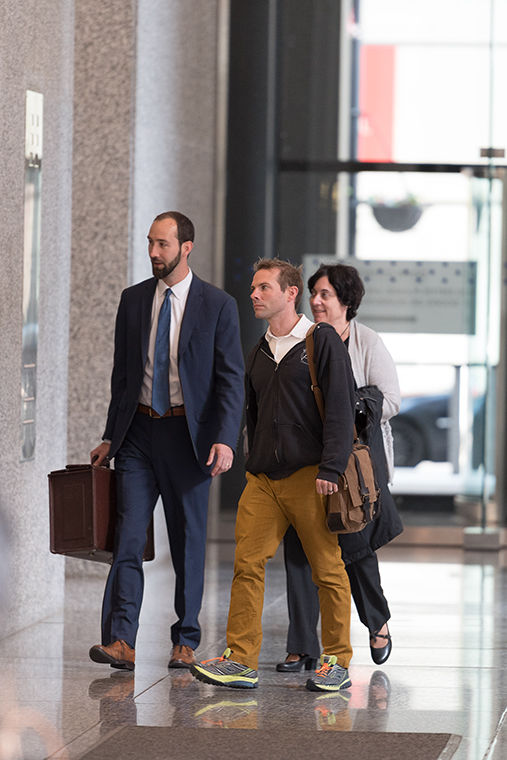New P-fac arbitration takes back staff’s classes
February 6, 2017

New P-fac arbitration takes back staff’s classes
A recent arbitration ruling directs Columbia to no longer assign teaching hours to full-time staff members and to pay sizable damages to adjuncts who lost courses to these staffers in the past academic year, according to a Jan. 25 email sent from the Part-time Faculty Association of Columbia.
The Jan. 13 arbitration decision also ruled that the union’s collective bargaining agreement prevents full-time staff from joining the part-time union, which is required for them to teach courses, according to the same email.
The arbitration conflicts with an older National Labor Relations Board ruling that said staff members who are already members of their own union could also be members of P-fac if they had previously taught at Columbia.
The Aug. 30, 2016, NLRB ruling said P-fac had to admit full-time staffers, as reported Sept. 19, 2016, by The Chronicle. The ruling allowed the staff to receive the same teaching assignment priority and compensation as non-staff members.
“Because the parties did not mutually intend to include [full-time staff] in the bargaining unit the Employer violated article IV and article VII of their Agreement when it treated those employees as if they were in the unit,” the arbitrator said in their ruling, according to the email.
P-fac’s lawyer Mike Persoon, an attorney at Despres, Schwartz & Geoghegan, Ltd, said P-fac is appealing the earlier decision to the NLRB in Washington D.C, as reported Sept. 19, 2016 by The Chronicle.
“We want to do everything to maintain the contract we negotiated,” Persoon said in the Sept. 19 article. “It would be a really extraordinary overreach to try to step in and change that.”
Persoon said in a Feb. 2 interview that arbitration was used because it was the dispute resolution method specified by the bargaining agreement.
“The employer agrees to resolve disputes by binding arbitration and in exchange, the union agrees not to strike,” Persoon said.
According to P-fac’s emailed announcement, the arbitrator also ordered Columbia to compensate for the loss of teaching hours and for the costs of arbitration.
“We estimate the college will have to pay at least $500,000 to harmed P-fac members as part of this arbitration and are moving to make this a federal judgment,” the email said. “In addition, the College will have to pay P-fac’s costs for the arbitration.”
According to Persoon, P-fac currently has an active federal court case to enforce the arbitrator’s decision.
“What’s troublesome in this case is the college has broken its promise yet again,” Persoon said. “Instead of being bound by that arbitration, they’ve refused to implement it, and we’ve had to sue them in federal court to get them to honor their promise and that’s what we’ve done.”
College spokesperson Anjali Julka said in a Jan. 31 statement on behalf of Terence Smith, the college’s special counsel for labor relations, that the college hopes to reach a final resolution soon.
Tanya Harasym, operations coordinator at the Learning Studio and representative for full-time staff who teach, said during a Feb. 2 interview that she thinks the upcoming NLRB ruling will supercede the arbitration finding.
“Whatever the outcome of that it is going to be the actual outcome. The NLRB decision trumps anything the arbitrator has decided,” Harasym said.
In preparation for negotiating a new contract with the college, P-fac said it has moved other contract violations to arbitration as well, according to the email. Persoon said they are pursuing more than 24 potential contract violations.
“As we move forward additional grievances to arbitration, we hope we don’t have to continue to go to federal court to make sure they abide with their end of the agreement,” P-fac President Diana Vallera said. “That’s really an important part of keeping labor peace, just to follow that clear process of grievance, arbitration and whatever the arbitrator decides needs to be implemented.”







